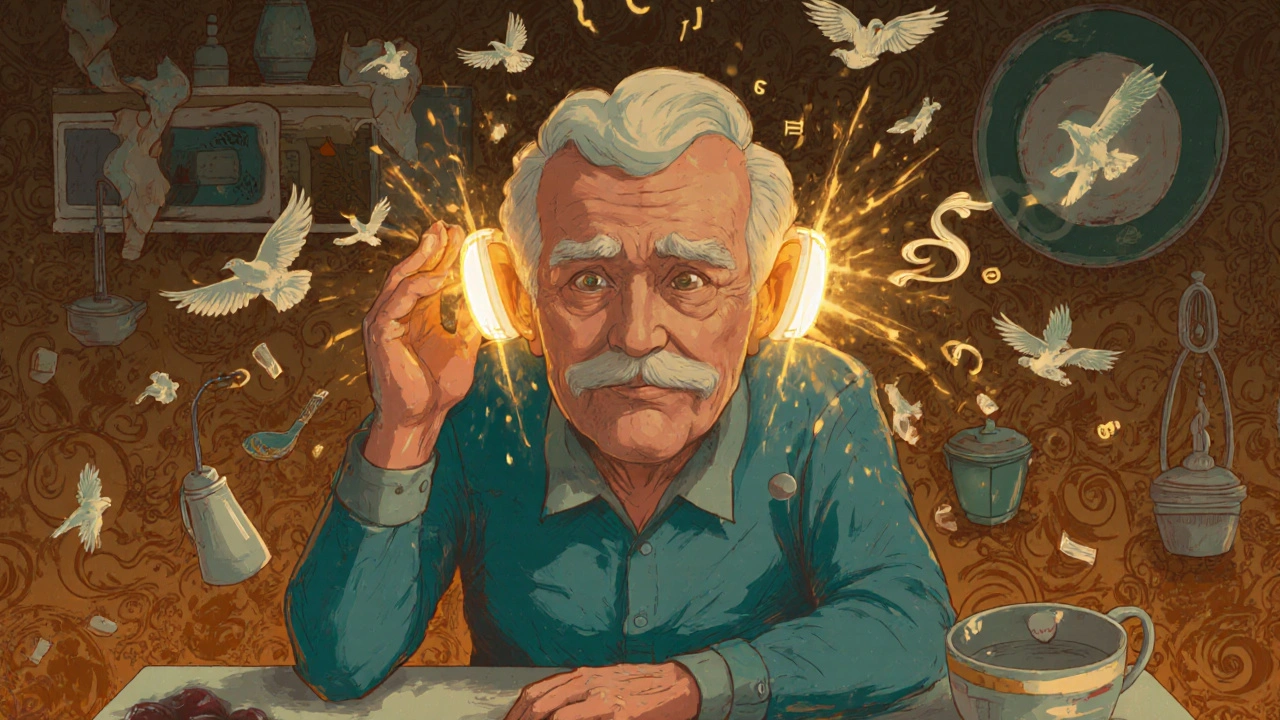Presbycusis: What It Is, How It Affects You, and What You Can Do
When you start missing parts of conversations, turning up the TV too loud, or feeling like everyone’s mumbling, it’s not just stress—it might be presbycusis, a gradual, natural loss of hearing that comes with aging. Also known as age-related hearing loss, it’s not a disease. It’s a normal change in how your ears and brain process sound as you get older. About one in three people over 65 have it, and nearly half of those over 75 do. It doesn’t hit everyone the same way, but the pattern is familiar: high-pitched sounds go first. That means birds chirping, doorbells, children’s voices, and consonants like "s," "th," and "k" become hard to catch—making speech sound fuzzy even when it’s loud enough.
What’s really going on? The tiny hair cells in your inner ear that turn sound waves into signals for your brain slowly die off and don’t grow back. Noise exposure over the years, genetics, circulation issues, and even some medications can speed this up. It’s not just about volume—it’s about clarity. You might hear someone talking but still not understand what they said. That’s because your brain struggles to separate speech from background noise, especially in places like restaurants or group chats. Many people mistake this for poor listening, but it’s a physical change. And it often comes with tinnitus, a ringing, buzzing, or hissing in the ears that can make hearing even harder. Tinnitus doesn’t cause hearing loss, but it makes coping with presbycusis much tougher.
And here’s the thing: presbycusis doesn’t fix itself. Hearing aids aren’t a cure, but they’re the only proven tool that helps you reconnect with the world. Modern ones aren’t big and clunky—they’re small, smart, and can filter out background noise automatically. Some even sync with your phone so you can hear calls clearly. If you’ve been avoiding the audiologist because you think it’s "just aging," you’re not alone. But waiting only makes social isolation worse. Depression, loneliness, and even cognitive decline are linked to untreated hearing loss. The sooner you get tested, the better your brain can adapt.
What you’ll find in the posts below isn’t a list of miracle cures. There aren’t any. But there are real stories, clear comparisons, and practical advice from people who’ve lived through this. You’ll see how hearing aids stack up against other options, what lifestyle tweaks actually help, and how to talk to your doctor without feeling dismissed. No fluff. No hype. Just what works—and what doesn’t—when your ears start to fade.

